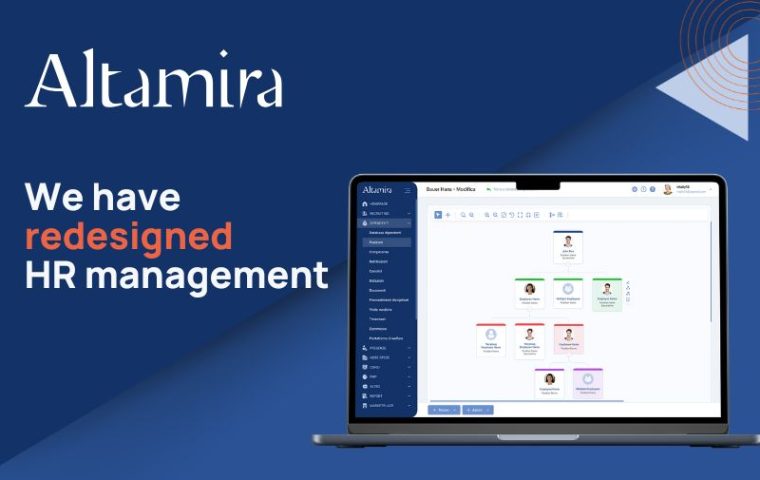Whether you wish to implement an HR platform for the first time or need to replace an obsolete software, choosing the right vendor can be the key to a successful digitalization of the HR processes.
To avoid rush decisions, you’ll need to carefully select vendors and compare different products to find the solution that best suits your requirements; this can be done through various channels, each with its own strength and weaknesses.
Here are five of the most popular options:
Do an online search
The easiest and quickest way to look for an HR software provider is to browse the internet using your preferred search engine (Google is the most widely used).
Searching for keywords such as “HR software,” “attendance detection software,” or “recruiting software” will gather a comprehensive list of results. A typical result page will show a couple of paid ads at the top, followed by regular search results – known as “organic” – which are usually ranked from most to least accurate. You’ll want to visit each supplier’s site, starting from the top and making your way down the list, to discover the most suitable ones; you’ll then be able to contact your shortlisted vendors to schedule a demo of their software.
Pros: This is a quick and easy option as it only requires a simple web search. It’s also a great way to get a complete picture of the solutions available since all suppliers have an online presence, albeit with different levels of visibility.
Cons: Searching for vendors, visiting websites, and scheduling demo appointments are time-consuming activities. You’ll also have to rely on direct information provided by the suppliers without the support of a more unbiased opinion.
Use an aggregator
While the name may sound unfamiliar, you most likely have used an aggregator before to browse restaurants in your area, book a hotel, or look for convenient flights for your travels: TripAdvisor and Booking.com are just two of the most commonly used content aggregators.
These platforms allow users to view and compare almost all available solutions at once, filter results, and, above all, have access to valuable reviews and ratings, greatly simplifying the decision-making process.
Similar platforms exist for corporate software, Capterra being one of the most popular ones.
Their website is organized into categories (such as HR Platforms, Recruiting software, LMS Platforms, etc.), each containing the vendors’ datasheet. The top results are from suppliers with a premium membership, ranked according to their investment on the platform, while the following products are indexed based on the number of reviews.
Capterra allows users to compare up to four different vendors and to read reviews written by customers.
Pros: The information provided is well organized and concise, while customer reviews help users identify the most reliable partners.
Cons: It does not include all suppliers available on the market, and those with basic membership have poor visibility. As with other aggregators, too many stellar reviews may be suspicious.
But Capterra is not the only option available: platforms such as Softdoit and Appvizer are two valid alternatives. Softdoit collects companies’ needs and requirements and shares them with the best-fitted HR providers, while Appvizer promotes the best developers through well-researched blogs and detailed product sheets.
Join industry events
Many HR events and conferences are directly sponsored by HR technology suppliers.
Therefore, conferences and industry events can be a fantastic opportunity not just for training and networking, but also to get in touch with the representatives present at the venue.
Business matchmaking events are purposely held to connect vendors with potential clients, allowing them to schedule quick back-to-back appointments.
Pros: Matchmaking events allow HR managers to schedule multiple appointments in just a day or two, saving precious time and effort.
Cons: The selection is limited and does not represent the entire market. Expanding the search to other channels may be necessary if you are not entirely satisfied with the options presented.
Attend training
As in any other field, HR professionals should regularly brush up and update their skills with a master’s degree or a training course.
Training courses are also a great way to learn more about HR providers by asking participants and trainers for advice. Likewise, the digitalization of Human Resources is increasingly becoming a key focus of master’s degree curriculums.
Pros: You can get first-hand advice from professionals and field leaders.
Cons: Course curriculums are inevitably focused on the “big players,” running the risk of overlooking some of the most innovative and disrupting products.<
Take advantage of the word of mouth
Asking peers and colleagues can be an effective way to find the best HR solution for your needs.
The right advice may come from a new colleague who had a pleasant experience with an HR management software at their previous company, a trainee who heard wonders about an HR software during his studies, or even a shared post on LinkedIn.
Communities dedicated to HR professionals are another valuable source of information, and so are comprehensive vendor case studies (here are the ones written by Altamira).
Pros: You can count on the first-hand experience of a trusted colleague or peer.
Cons: The choices presented are often limited, and a previous positive experience isn’t necessarily a guarantee for repeated success.
Copyright: ©Alex/Adobe Stock














